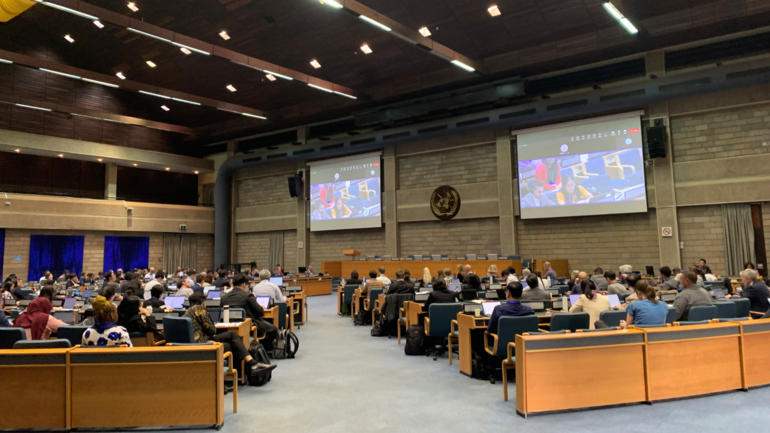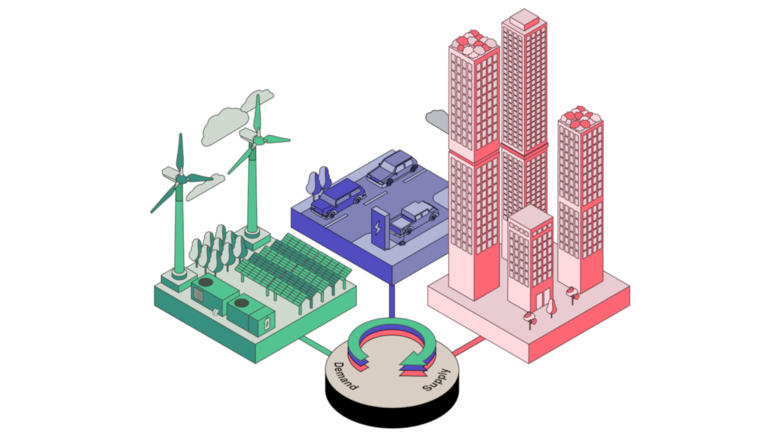WBCSD has taken a leadership role in the Nutrition for Growth Summit by co-chairing the N4G Business Constituency Group (BCG) and representing the private sector on the N4G Advisory Group. In collaboration with the BCG, WBCSD led the development of the Responsible Business Pledge for Better Nutrition, which is expected to receive numerous commitments at the N4G Summit. The following statement reflects the N4G activities and commitments of all BCG members.
Statement by the Business Constituency Group
Nutrition for Growth (N4G) was launched in 2013 at the headquarters of Unilever, reflecting the ambition from day one that business can help combat malnutrition. But specific business commitments back in 2013 were few and ad hoc.
2021 is different. Why? Two years ago, the Dutch and Japanese Governments supported a conference of business leaders in The Hague to launch a collective effort by business to support N4G to drive greater action toward ending malnutrition and helping ensure everyone, everywhere can reach their full potential. Six leading business organizations – Food Industry Asia (FIA), The Consumer Goods Forum (CGF), the International Food and Beverage Alliance (IFBA), the SUN Business Network (SBN), Nutrition Japan Public Private Platform (NJPPP) and the World Business Council for Sustainable Development (WBCSD) – formed the N4G Business Constituency Group (BCG). The Access to Nutrition Initiative (ATNI) and the Global Alliance for Improved Nutrition (GAIN) supported this working group, which was itself a “first” - bringing together different associations around a common goal.
That goal was to identify ways that businesses large and small could support efforts to tackle all forms of malnutrition, recognizing that most of the core underlying problems of malnutrition can never be addressed without actions by those that grow, manufacture, distribute and market food to consumers. The BCG's efforts have focused on the second thematic area of the N4G Summit “Diets: Building food systems that promote healthy diets and nutrition” and provides a strong bridge between the UN Food Systems Summit and N4G. The leaders of the two Summits have worked collaboratively as set out in this joint statement to advance the nutrition agenda and deliver on a deeper, holistic food systems transformation.
Together, the BCG developed five areas of SMART commitments. These will be set out as a contribution to N4G in Tokyo and highlight the BCG’s commitment to better nutrition globally:
First: The Responsible Business Pledge for Better Nutrition (RBP): The RBP, developed by WBCSD and IFBA with the support of the broader Business Constituency Group, is a framework to enable private sector leadership and SMART commitment-making for the N4G Summit. Fully aligned with the N4G Commitment-making Guide and Principles of Engagement, it calls on business leaders to make nutrition a board-level priority and for each corporate signatory to bring forward at least three SMART commitments to N4G spanning several commitment areas that link to core business models and operations: Nutrition-Smart Agriculture, Product Reformulation and Innovation for Improved Nutrition, Business Model Innovation for Improved Nutrition, Responsible Marketing, Promote Healthy Eating, Workforce Nutrition and Finance and Investment for Improved Nutrition. On day one of the N4G Summit, WBCSD will share an overview of the history and work of the BCG as well as the development of the RBP. Some of the WBCSD member companies’ recent nutrition commitments can be found here.
Second: A new Investor Coalition: This sets investor expectations related to corporate governance, strategy, lobbying and transparency for food and beverage manufacturers and retailers. Supported by ATNI, 76 investors representing $16.6 trillion in assets under management have signed up to the Investor Expectations on Nutrition, Diets and Health, thereby joining the coalition. On day one of the N4G Summit, the investor coalition will be presented by the Japanese investment firm Resona Asset Management.
Third: International Food and Beverage Alliance member companies have been working on new global nutrition commitments as part of the Responsible Business Pledge. The first new commitment is about sodium reduction. IFBA has set new global targets for maximum sodium content of packaged foods across some forty food sub-categories, for 2025 and 2030. Each IFBA company will commit to meeting these targets across key categories that together comprise at least 75% of the company’s sales. This is the first time ever that collective voluntary global sodium content targets are set in the private sector. Secondly, IFBA has developed an enhanced Global Responsible Marketing Policy. Based on this policy, IFBA companies must either limit products they market to children under 13 to products that meet a set of specific nutrition criteria; or refrain from directing marketing to children under 13 altogether. This is a minimum global standard with which all IFBA companies commit to comply with as of 2022. IFBA will elaborate upon these commitments in the thematic session on Food Systems for Healthy Diets during day two of the N4G Summit.
Fourth: the Workforce Nutrition Alliance, co-led by CGF and GAIN, supports employers to adopt and expand workforce nutrition programs. It will impact 3 million employees in their organisations and supply chains by 2025. Its most recent signatory, Google, will present The Workforce Nutrition Alliance on day one of the N4G Summit.
Fifth: Small and Medium Enterprises (SMEs): The SUN Business Network pledges a set of commitments to raise awareness of the role of SMEs in nutrition and with the support of partners strengthen the capacity of SMEs to provide nutritious foods. These commitments include the recruitment of 3,000 SMEs across Africa, Asia, and Latin America by the end of 2024. On day two of the N4G Summit, in the Food Systems for Healthy Diets Session, SBN will present these commitments.
Underpinning these initiatives are actions by many hundreds of companies to change their business models, practices and operations. Ajinomoto will give one example of what Japanese businesses are doing to help address all forms of malnutrition. Google, DSM and Unilever will share additional international examples of nutrition leadership during the N4G Summit as well. These changes are captured in SMART commitments, they add up to changes in markets at scale, and will benefit billions of consumers in every society.
There are other areas – fortification, which helps deliver better nutrition resilience; improving finance for SMEs; tackling anaemia deficits - in which businesses are key players. The Zero Hunger Private Sector Pledge, that emerged from the UN Food Systems Summit, gathered commitments worth a total of $400 million by 40+ companies working with UN and development agencies, and is a further example of how to scale impact alongside government spending and aid dollars.
There is no room for complacency - a daunting set of challenges continues to be ahead of us. The past two years have seen worsening malnutrition figures of overweight and obesity, hunger, micronutrient deficiencies and those who cannot afford a healthy diet, making food an epicenter of so many interlinked problems of poverty, underdevelopment, climate and environmental degradation. These are best addressed together, and the Business Constituency Group looks forward to the continued dialogue with governments and civil society on how best to do this. The BCG is committed to positive change, but we cannot achieve the necessary impact alone. Let’s work together on better nutrition as part of sustainable food systems.
This statement is written on behalf of all Business Constituency Group members: the Access to Nutrition Initiative (ATNI); The Consumer Goods Forum (CGF); Food Industry Asia (FIA); the Global Alliance for Improved Nutrition (GAIN); the International Food and Beverage Alliance (IFBA); the Nutrition Japan Public Private Platform (NJPPP); the Sun Business Network (SBN); and the World Business Council for Sustainable Development (WBCSD).








